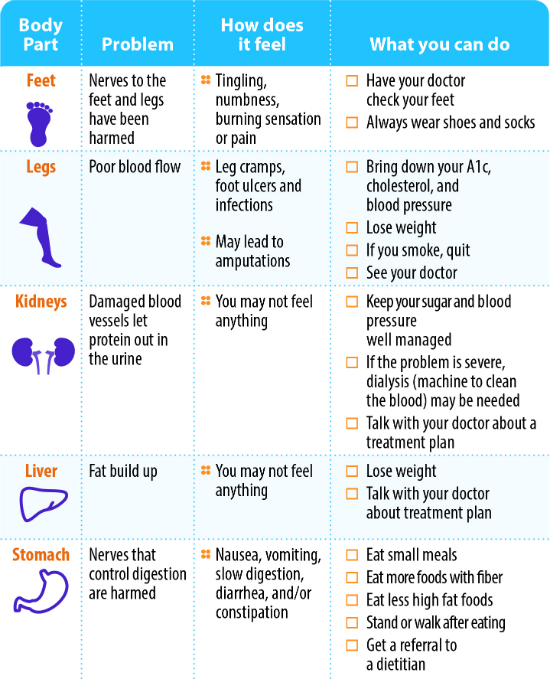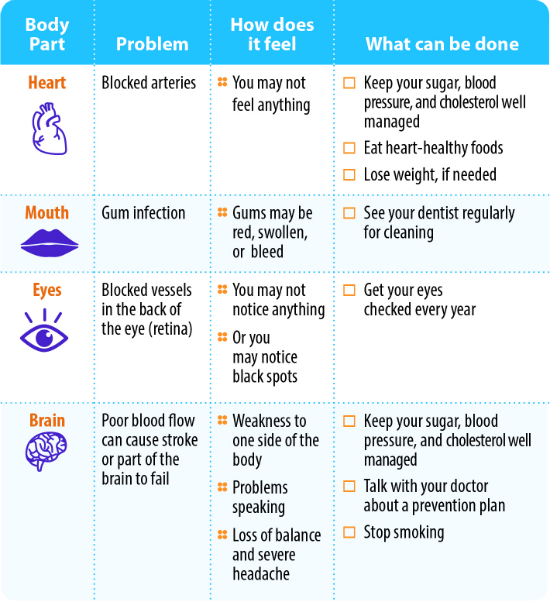...Even for young people
Sometimes when you have diabetes, you may feel fine. But if your blood sugar is high, you could face serious complications, like nerve damage and blocked blood vessels, which can even lead to getting a limb amputated, having a stroke, or going blind.
That doesn't have to happen! You can prevent complications from diabetes by managing your blood sugar.
The keys to managing diabetes are: Healthy Eating, Exercise, and Medication
Your blood sugar level is tied to the foods you eat. People with diabetes need to balance the type and amount of food they eat at each meal.
MyPlate for Diabetes
The MyPlate method for people living with diabetes is a way of planning each meal to make sure it's healthy and balanced.
Build a Healthy MyPlate for Diabetes
Think of your plate as having 4 equal sections.
- Fill 2 sections (1/2) of your plate with vegetables.
- Fill 1 section (1/4) of your plate with lean proteins like fish, chicken or turkey.
- Fill 1 section (1/4) of your plate with carb-foods. Choose whole grains to fill this section.
- Have one small serving of fresh fruit per meal. (Fruit juice is not a replacement for fruit.)
- Have water or one cup of non-fat milk or unsweetened non-dairy milk like soy or almond milk with your meal rather than a sweetened or "diet" drink.
Regular physical activity is important for managing diabetes.
What can you do to be more active?
Pick activities you enjoy the most. It's best to do at least one activity in each of the categories below.
Aerobic
Swimming
Dancing / Zumba
Walking
Strengthening
Using Resistance Bands
Gardening
Free Weights
Stretching
Yoga
Simple Stretching
Tai Chi
Taking medicine to control your blood sugar levels is normal. Most people with diabetes also need meds for other health problems, like high cholesterol or high blood pressure. It is very important to take your meds as directed by your doctor.
There are 3 types of diabetes medications
- Pills
- Non-insulin injectables (shots)
- Insulin injectables (shotes)
Keep track of your medications
- Take your medicines at the right times.
- Fill a pill box with the medicines for the week.
- Keep you medicines in the original bottles until you put them in the pill box.
- Take your medicines at the same time every day.
- Us a chart, calendar, or timer to help you remember.
Talk with your doctor about your medications
Use these tips to get ready for your next doctor visit:
- Write down your questions.
- Keep a list of your medicines.
- Write down any side effects of each medicine.
- Bring all your medicines to each visit.
Remember - take your medications exactly the way your doctor prescribed them. If you aren't sure when or how often to take them, ask!


